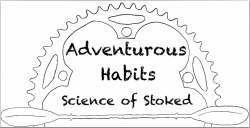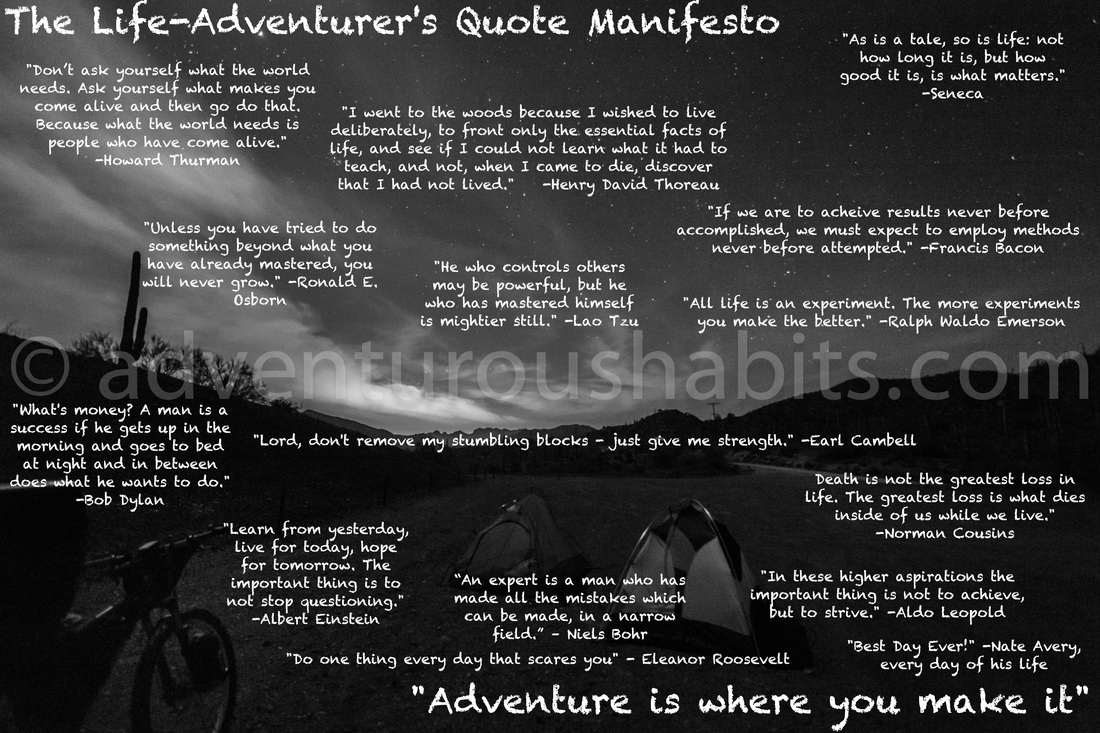“Funny, our sophisticated technology is meant to help us solve problems, but it seems to have created many more. Eye contact with your computer screeen or cell phone might have its advantages, but at the expense of eye contact from real life people around you?”
-Mark Sisson
Growling erupted just outside of the tent walls, sending my heightened state of alertness plummeting into a laugh. It was Joaquin making bear noises outside, and doing a very poor job of it.
I spent the last week in one of the most beautiful, yet physically intimidating places I have ever laid eyes upon - the Cirque of the Towers in the Wind River Range of Wyoming. After leaving the Big Sandy campground - a calm, sunny, 70-degree slice of mosquito-filled beauty - we ascended into the Cirque, navigating waist-deep snow drifts piled in the looming shadows of the multiple-thousand foot towers and watching as the grey skies brought the impending storm closer and closer. We were there with only wonder and the physical gear and clothes we could carry on our backs for the long trek in. Our plan: to climb and explore these towers.
We live in a country that is increasingly defined by an abundance of technology and information. Literally anything we want to know is at our fingertips... and many things we don’t need nor want to know are presented to us anyway. Now don’t get me wrong - I understand that technology has produced greater human welfare than even our grandparents could have dreamed of, affording us luxuries in this life for which it is impossible to show enough gratitude. My concern is has all of this technology actually made us happier?
Dan Pink discusses this in his excellent book A Whole New Mind, quoting Columbia University professor Andrew Delbanco who suggests, “The most striking feature of contemporary culture is the unslaked craving for transcendence.” Whether through practices like yoga, meditation, or spirituality, we as a culture seem to be seeking some sort of meaning or purpose in our lives that will serve to ground us to a cause, even when things are thrown out of balance. Just having more stuff is not enough without a purpose in life.
To add to the complexity of The Paradox, technology may actually be the answer to providing us with that meaning and purpose. The ways in which we can connect with others in order to help them and develop relationships instantaneously can either fulfill our life’s purpose, or lead us down paths that can help us find it. This leads me to my discussion of The Ultimate Lifehack, Part II (coming next week!).
For me, blogging has certainly given my life more purpose than I may have been able to find without using the tools of technology. Beyond that, it has encouraged me to continue to go and take beneficial actions that I may have talked myself out of in the past. However, it is a delicate balance between using technology enough to find your purpose, and becoming addicted to it (literally).
The Delicate Balance: Mastering Technology Overuse
Technology can be addictive - literally. Charles Duhigg explains the habit-forming loop - a cue, routine, and reward - in his book The Power of Habit; in the case of technology the cue may be the beep of a new text message, the routine is you checking it, and the reward is seeing who it is and what they are telling you. Notice that the last step is ‘the reward.’ Even in the case of work messages and emails, the hit of dopamine and other ‘feel good’ chemicals that we get from checking a message and feeling productive is enough to make us always crave that feeling. WHAT!?!? Read that last sentence again. Why would this be true even for work emails!?
Well, Mark Sisson notes in The Primal Connection that evolutionarily we are wired to perceive lots of sensory inputs - lest any of them be important for saving our lives if a saber-tooth tiger were stalking us. Our bodies are programmed for us to check and see what is causing strange sounds in bushes or - in the case of the modern world - to see who is messaging us. Our bodies keep us doing this by producing these ‘feel-good’ chemicals when we do indeed check the source of the noise. MIT media scholar Judith Donath confirmed that the rewards from digital mediums become extremely hard to resist in a comment to Scientific American - scary stuff, right?
Well, here is what I find even scarier - Sisson also notes that Clifford Nass, a communications professor at Stanford University, believes that a consequence of the prominence of digital media in our lives is that we are losing our ability to empathize with others. According to the aforementioned Dan Pink’s A Whole New Mind, empathy is one of the six fundamental characteristics that will determine what companies and people flourish in the coming (and already upon us) ‘Conceptual Age’. Read into this: mastering your own technology overuse it may be essential for your success.
Six Easy, Yet Oh-So-Challenging, Steps to Mastering Technology Use
1. Begin to let go of the classic American feeling that every waking hour needs to be productive... since most of your hours checking email really aren’t productive anyway. Revel in the fact that deep nasal breathing and daydreaming have health and creativity benefits and develop critical R-directed aptitudes and help you to become fully engaged when you are actually working.
2. Check email twice a day. Pull a Tim Ferriss and set up an autoresponder if necessary (4-Hour Workweek, Chapter 7). Complete the most important task for the day first.
3. Don’t watch or read the news. It is generally unactionable toward your goals.
4. Remove internet-based updates from your phone, or preferably get used to not carrying your phone while away from work or fully engaged in a task (there are many health benefits to not having the radiation).
5. Remove the internet from your home (again, there are health benefits to not having the radiation).
6. Use two, ten-minute blocks every day to get all recreational information. This causes you to be a critical editor of your own information input - ‘is this really what I want to spend my twenty minutes reading?’



